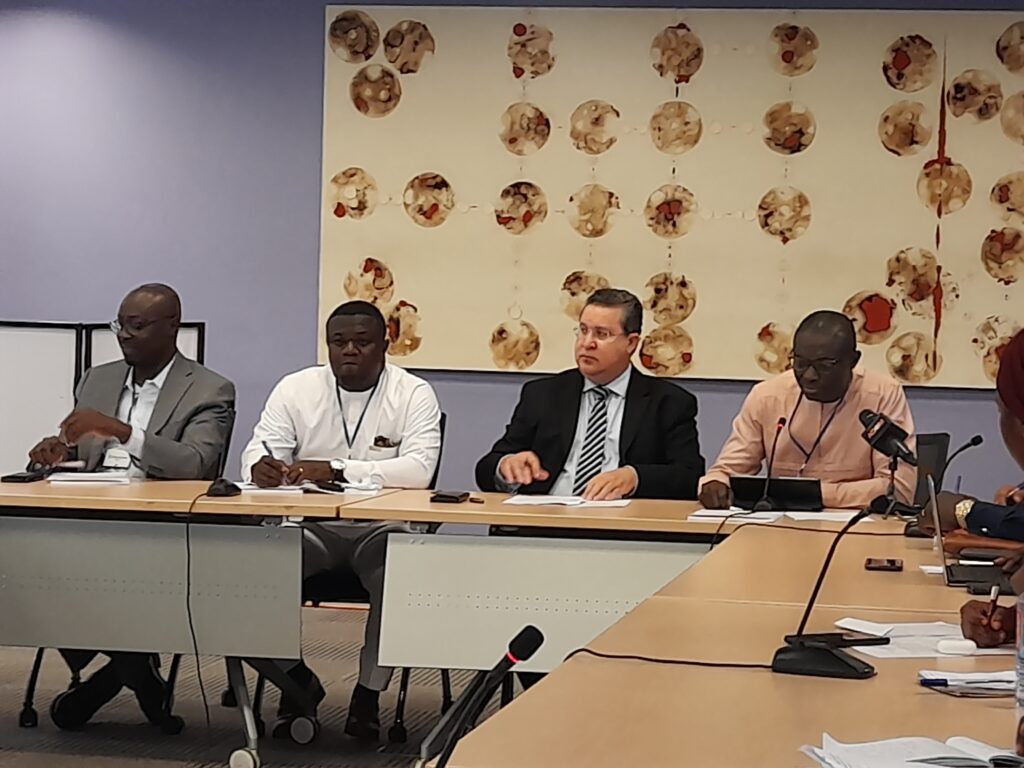Ghana was first African country to receive World Bank loan
Has received more than $10 billion since 1957

About 65 years ago in 1957, Ghana became the first country in sub-Sahara Africa to receive the World Bank’s loan. The loan was used in the construction of the country’s first hydroelectric dam at Akosombo. The World Bank has since approved more than 216 projects and disbursed over $10.2 billion to the country, Pierre Laporte, the World Bank Country Director for Ghana, Liberia, and Sierra Leone has said.
Mr Laporte who was speaking at the relaunch of the Ghana Chapter of the Parliamentary Network of the World Bank and the International Monetary Fund (IMF), at the offices of the Bank in Accra said, “we have contributed to the continuous reduction of poverty in Ghana over the decades, however modest our contribution might have been.”
The Parliamentary Network is a global platform for parliamentarians from over 160 countries with over 2,000 members. It was set up to advocate for increased accountability and transparency in international financial institutions and multilateral development financing.
“Our historical relationship has not been easy, but we have stuck with Ghana, respected our differences, and worked together around a common agenda. Ghana went through troubled economic times from the 70s. Since then, Ghana has unfortunately experienced diverse economic challenges every decade including the 2000’s and presently. What is important is that, like in all partnerships, we have stuck with Ghana and continue to move on together,” he added.
Mr Laporte notes that to deepen dialogue and support reforms in specific sectors, he is hopeful that the work of the Bank over the years, through the national budget, strengthens the way that sector ministries work with the Ministry of Finance to coordinate Ghana’s development agenda and achieve the results that Ghana has set out for herself.
“To really make a difference and ‘Together Transform Ghana’, we must really make sure that there is value for money in public investments for the delivery of basic services to citizens.
We have worked on audit, public finances processes and so on and all of that is fine. But the most important thing, I think, is that citizens all around Ghana including their Parliamentary representatives need to monitor what is being done. This monitoring could greatly contribute to getting the best value for money. If that happens, nothing can stop Ghana from reaching where it wants to be,” he said.
Our historical relationship has not been easy, but we have stuck with Ghana, respected our differences, and worked together around a common agenda.
Mr Laporte stated that the COVID-19 pandemic and Russia-Ukraine war had interrupted Ghana’s growth and exacerbated macroeconomic and structural challenges, including debt vulnerabilities and energy sector fiscal risks, and noted that high fiscal deficits and increasing public debt had elevated Ghana’s country risk, limited foreign direct investment in non-commodity sectors, and increased the cost of finance for private businesses.
He however added that despite recent challenges, he was convinced that Ghana could sustain its lower middle income country status to become a fully-fledged middle-income country.
Mr Kwaku Agyemang Kwarteng, the Chairman of the Finance Committee of Parliament and current chair of the Network says they aim to grow the group and help it achieve the global initiative, with MPs with clear objectives. He also said the Network with MPs from both sides of the House, could ensure that capacity building programmes were organised regularly for MPs as part efforts to enhance their oversight functions.
Mr Ato Forson, vice chair of the Network said the Network working with the World Bank would ensure the Bank interfaces with the representatives of the people so they can together deliver programmes that work for the people.
In remarks made virtually, Lian Byrne, a British MP and Global President of the Parliamentary Network said the relaunch of the Network in Ghana is important for the country, adding that “bottom-up policy is better than top-bottom policy, “we can solve problems not because we have the answers, but because we talk to our people,” he said.
By Emmanuel K Dogbevi
Copyright ©2022 by NewsBridge Africa
All rights reserved. This article or any portion thereof may not be reproduced or used in any manner whatsoever without the express written permission of the publisher except for the use of brief quotations in reviews.
